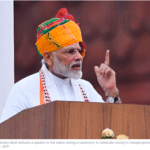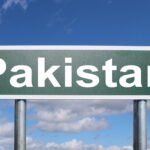Pakistan is gearing up for provincial assembly elections in Punjab and Khyber Pakhtunkhwa, following the dissolution of the assemblies in January this year. The Election Commission of Pakistan (ECP) recently proposed possible poll dates to President Dr. Arif Alvi, who then announced that elections in Punjab will be held on April 30. The ECP suggested that the elections be held between April 30 and May 7, preferably on a Sunday.
The announcement comes after the Supreme Court of Pakistan ruled that the elections should be held within the stipulated period of 90 days after the dissolution of the assemblies. The court allowed the ECP to propose a poll date that deviates from the 90-day deadline by the “barest minimum” in case of any practical difficulty. The president and KP governor will fix the dates for Punjab and KP assemblies, respectively, in consultation with the ECP.
The announcement of poll dates has been welcomed by the ruling Pakistan Tehreek-e-Insaf (PTI) party, with PTI leader Fawad Chaudhry calling it a “step in the right direction” and a “victory for the Constitution”. However, the process leading up to the announcement of the poll dates has been marred by controversy and criticism.
In November last year, former prime minister Imran Khan announced that his party would disassociate itself from the “current corrupt political system” by quitting the two provincial assemblies where PTI was in power. Although several obstacles were put up by the coalition government, the Punjab and KP assemblies were dissolved in January this year. Under the law, the elections are to be held within 90 days after the dissolution of assemblies.
The finance division had expressed its inability to provide funds, while the interior ministry told the ECP that the army and civil armed forces would not be available. The chief secretaries and inspectors-general of the two provinces had also expressed concerns about a shortage of police force and terrorism threats, making a case for putting off elections.
President Alvi had invited the Chief Election Commissioner (CEC) for a meeting regarding consultations on election dates, but the ECP had told him that he had no role in the announcement of dates for general elections to provincial assemblies. The ECP said it would announce the poll schedule only after the “competent authority” fixes the date. Subsequently, President Alvi unilaterally announced April 9 as the date for holding general elections for the Punjab and KP assemblies, drawing criticism from political opponents who accused him of acting like a PTI worker.
The controversy surrounding the announcement of poll dates raises concerns about the independence of the ECP and the role of the president in the electoral process. Critics have argued that the ECP should be given more autonomy to conduct elections without interference from political actors. They have also called for reforms to strengthen democratic institutions and ensure free and fair elections in Pakistan.
Pakistan has a long history of political instability and military coups, which have undermined democratic processes and institutions. The country’s democratic transition has been slow and fraught with challenges, including corruption, violence, and human rights abuses. The military’s role in politics remains a contentious issue, with critics accusing the army of interfering in civilian affairs and undermining democratic institutions.
Despite these challenges, there have been some positive developments in Pakistan’s democracy in recent years. The 2018 elections, which brought the PTI to power, were widely regarded as free and fair and marked a peaceful transfer of power from one civilian government to another. The PTI government has also initiated reforms aimed at strengthening democratic institutions and promoting transparency and accountability.
However, the challenges facing Pakistan’s democracy are still formidable. The upcoming provincial assembly elections will be a crucial test of the country’s democratic processes and institutions. It is essential that the elections are conducted in














